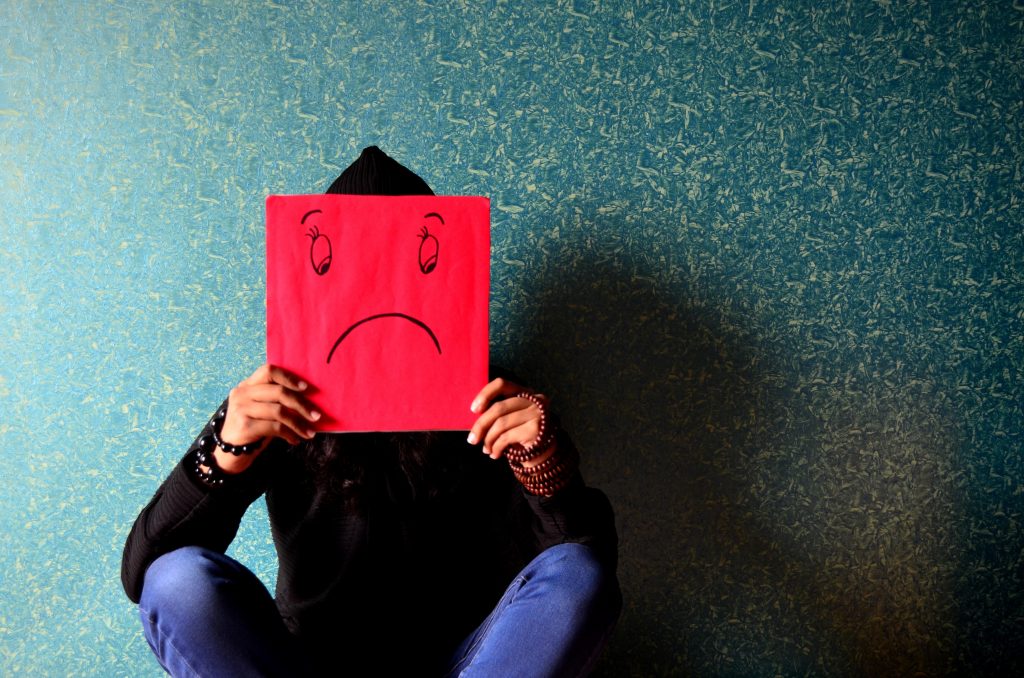By Allison Sadlier // SWNS
New York office - 646-873-7565 / usnews@swns.com
NEWS COPY w/ VIDEO & INFOGRAPHIC
One in four people don’t feel they have someone to confide in, according to new research.
Even after sharing their feelings, seven in 10 have held back how they really felt from a coworker, friend, or partner.
A study of 2,000 Americans examined how daily stressors can affect mental health and what prevents people from seeking out therapy and additional help.
The results revealed that nine in 10 people admit to downplaying their emotions so they won’t worry or burden a loved one.
The survey, conducted by OnePoll on behalf of BetterHelp, found that young people ages 18-30 are seriously withdrawn ‒‒ across the board they were more uncomfortable than people over 50 discussing money, job stress, parents, or friends with a partner.
Holding so many emotions back unfortunately causes those worries to manifest in physical ways.
Results found that trouble sleeping, bad focus, short temper, and poor eating habits all made it on the top five ways people’s stress gets the better of them.
Three in 10 admitted that they’re more prone to crying when stressed and there’s definitely some preferred places for letting a few tears leak out.
More than half (53 percent) have cried in their car, while two in five have shed tears at a family event, and 34 percent have even cried at their job.
Walking down the street and the grocery story rounded out the other most common places people have cried.
Still, for all this stress, three in four Americans feel there’s still a stigma surrounding mental health and therapy — even though 36 percent would like to attend regular therapy sessions.
The stigma shrouding therapy might be due to some outdated assumptions people have about it.
One in two think therapy is all about discussing one’s childhood. Other respondents admitted they think patients have to lay on a couch (30 percent) or talk to someone who looks like a “professor” (26 percent).
Half of respondents interested in trying therapy said high costs prevent them from exploring it further. The average person estimated that an hour long session with a good therapist would cost $188.91 without insurance.
Founder and BetterHelp CEO Alon Matas said:
“A lot of people think that therapy is all about wading through deep-rooted trauma. While it certainly can be, there is a lot of benefit to consulting with a counselor on a regular basis about daily stressors. It takes a lot of courage for people to reach out and get help. Often people find that traditional therapy can be prohibitively expensive, difficult to access, and hard to schedule.”
Other common reasons people gave for not seeking out a therapist included not having enough time (32 percent) and not knowing how to find a therapist (24 percent).
One in four didn’t think their troubles were “serious enough” to warrant talking to someone. Heartbreakingly, about a quarter of people struggled with feeling embarrassed and didn’t want anyone else to find out if they went to a therapist.
Despite all of these concerns, over half the respondents (54 percent) wished they had attended therapy at some point in their life.
The most frequent experiences that people regret not getting professional help for were: grieving the passing of a loved one (50 percent), feeling depressed (50 percent), financial struggles (42 percent), a breakup (35 percent), and a traumatic experience (35 percent).
Matas added:
“Regular counseling can be a gamechanger for a lot of people in improving and maintaining their mental health. Having someone in your corner who is there to help you with life’s challenges can make a world of difference.”
TOP PLACES PEOPLE CRY
In the car 53%
Family event 41%
Work 34%
Walking on the street 29%
Grocery store 16%
WHAT PREVENTS PEOPLE FROM TRYING THERAPY
No time 32%
My problems aren’t serious enough 26%
Too embarrassed 26%
Don’t know how to find a therapist 24%
Don’t want anyone to find out 23%
WHY PEOPLE WISH THEY ATTENDED THERAPY
Grieving loss of loved one 50%
Generally depressed 50%
Struggling financially 42%
Breakup 35%
Traumatic experience 35%
Caring for someone with an illness 31%
Stress at work 28%
Lost job 25%
Falling out with family member or friend 20%
